The Army Combat Fitness Test (ACFT) stands as a cornerstone of the U.S. Army’s commitment to ensuring its soldiers possess the physical readiness essential for the rigors of modern combat and operational demands. This comprehensive test, designed to assess a soldier’s strength, endurance, and agility across six challenging events, marks a significant shift from the traditional Army Physical Fitness Test (APFT) to a more holistic approach to physical fitness.
But what happens when a soldier faces the daunting reality of failing the ACFT? The implications of not passing this critical evaluation extend beyond the immediate concern of physical fitness, touching on various aspects of a soldier’s career, from promotion opportunities to potential impacts on their military service continuity.
This article delves into the multifaceted consequences of failing the ACFT, exploring the remedial paths available to those who do not meet the required standards, the administrative processes that follow, and the overarching importance of physical preparedness in the military profession. It aims to provide a comprehensive overview of the steps the Army takes to support its soldiers in achieving the necessary fitness levels, highlighting the balance between maintaining operational readiness and fostering a culture of resilience and improvement among its ranks.
Why Is ACFT Important?
The Army Combat Fitness Test (ACFT) represents a pivotal shift in the U.S. Army’s approach to physical readiness and combat preparedness [1], reflecting a broader understanding of the demands placed on modern soldiers. This comprehensive fitness evaluation, designed to assess a soldier’s physical capabilities across a spectrum of combat-related tasks, underscores the importance of a physically fit and adaptable military force. The ACFT’s introduction signals a move away from the traditional Army Physical Fitness Test (APFT), aiming to better align physical training and assessment with the realities of contemporary military operations.
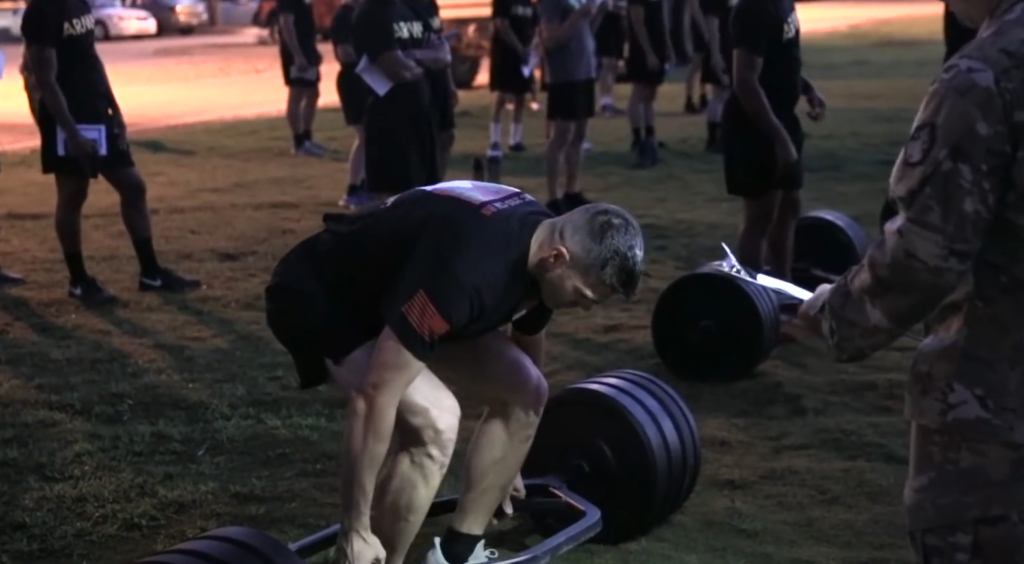
A Holistic Approach to Fitness
[tds_note]The ACFT comprises six events: the maximum deadlift, standing power throw, hand-release push-ups, sprint-drag-carry, leg tuck, and a two-mile run [2]. This diverse range of activities is designed to measure all aspects of physical fitness, including strength, endurance, and agility, offering a more comprehensive assessment of a soldier’s combat readiness than its predecessor. By focusing on functional fitness, the ACFT ensures that soldiers are not just fit but prepared for the physical tasks they may face in combat, from carrying heavy equipment to moving quickly under fire.[/tds_note]
Enhancing Combat Readiness
The primary objective of the ACFT is to enhance the combat readiness of the U.S. Army. The test’s rigorous standards are based on the physical demands of combat roles, ensuring that all soldiers possess the strength, endurance, and agility required for battlefield success. This direct correlation between the ACFT’s components and real-world combat tasks means that a soldier’s performance on the test is a reliable indicator of their operational effectiveness. By prioritizing physical readiness, the Army aims to reduce the risk of injury and increase the survivability of its soldiers in combat situations.
Promoting Physical and Mental Resilience
The ACFT is about more than just physical fitness; it’s also a tool for building mental resilience. The test’s challenging nature requires soldiers to push their limits, fostering a mindset of determination and perseverance. This mental toughness is invaluable, equipping soldiers to face not only the physical but also the psychological challenges of military service. The preparation for and execution of the ACFT encourages soldiers to set goals, work towards them diligently, and adapt to setbacks—skills that are transferable to the complexities of military operations and life beyond.
Tailoring Training to Mission Requirements
One of the ACFT’s significant advantages is its ability to inform and shape individual and unit training programs. By identifying specific areas of weakness, the ACFT allows commanders to tailor physical training to the unique needs of their soldiers and the operational requirements of their units. This targeted approach ensures that training is efficient and effective, maximizing readiness and operational performance. Furthermore, the ACFT’s standardized scoring system provides a clear benchmark for physical fitness, enabling the Army to measure and compare the readiness of units across the force.
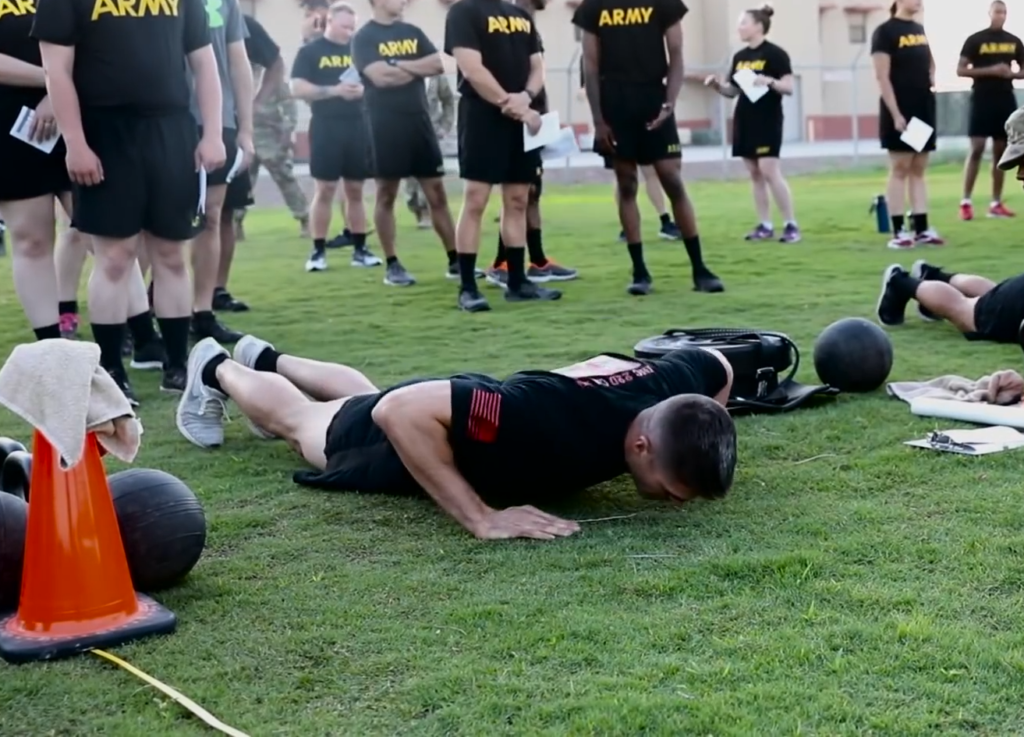
Fostering a Culture of Fitness
The introduction of the ACFT has also played a crucial role in fostering a culture of fitness within the Army. By setting high standards and emphasizing the importance of physical readiness, the test motivates soldiers to maintain a consistent physical training regimen. This cultural shift towards valuing fitness not only as a requirement but as a core aspect of military identity enhances the overall health and well-being of the force. Additionally, the ACFT’s inclusive design — accommodating soldiers of all genders and ages with a single standard — promotes unity and equality, reinforcing the concept of a cohesive, capable team.
Improving Deployment Readiness
The ACFT’s comprehensive nature ensures that soldiers are physically prepared for the demands of deployment, regardless of their role or mission. The physical fitness it cultivates is crucial for the unpredictable and often physically demanding environments soldiers face while deployed. By ensuring that all soldiers meet these rigorous fitness standards, the Army enhances its ability to rapidly deploy a combat-ready force, capable of executing its mission effectively and efficiently.
Reducing Injuries and Healthcare Costs
A significant benefit of the ACFT is its potential to reduce the incidence of training-related injuries. By promoting balanced, whole-body fitness, the ACFT prepares soldiers’ bodies to withstand the rigors of military service, thereby decreasing the likelihood of injury. This not only benefits the individual soldier’s health and career but also has broader implications for the Army’s operational effectiveness and healthcare costs. A fitter, healthier force is less likely to incur injury-related expenses, allowing for a more efficient allocation of military healthcare resources.
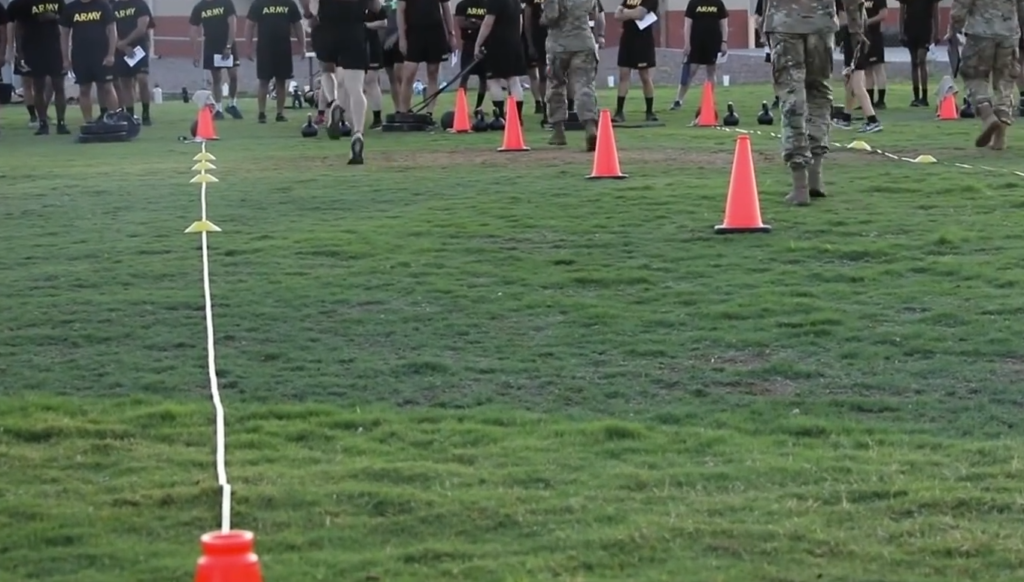
The ACFT Transition and Policy Review in 2023
In 2023, the U.S. Army transitioned from the standard Army Physical Fitness Test (APFT) to the more comprehensive Army Combat Fitness Test (ACFT) [3]. This move was not without controversy. Critics argued that the new test is too challenging, while supporters maintained that it better reflects the physical demands of combat.
The ACFT, unlike the APFT, includes six events: the three-repetition maximum deadlift, standing power throw, hand-release push-up, sprint-drag-carry, leg tuck, and a two-mile run. These events were designed to test a soldier’s strength, speed, agility, and endurance comprehensively. However, the transition has been met with significant resistance, particularly from those who have failed the test.
The Army conducted an extensive review of its policies surrounding the ACFT in 2023. It found that while the test did offer a more comprehensive measure of fitness, it also presented unique challenges. Many soldiers struggled to meet the new standards, leading to a high failure rate. This raised concerns about the potential impact on morale and readiness.
Why Is It Important to Pass the ACFT Test?
Passing the ACFT is crucial for many reasons:
- Firstly, it ensures that soldiers are physically prepared for the rigors of combat. The ACFT is designed to simulate the physical activities soldiers may encounter on the battlefield. By passing the test, a soldier demonstrates their ability to perform these tasks effectively;
- Secondly, the ACFT contributes to the overall health and well-being of soldiers. Regular exercise, such as the activities included in the ACFT, has been proven to reduce the risk of chronic diseases and improve mental health. Therefore, the test encourages a healthier lifestyle among soldiers;
- Finally, passing the ACFT can affect a soldier’s career progression. A fail can limit opportunities for advancement and even result in discharge from the Army. Therefore, it’s not just a matter of physical fitness, but also a crucial factor in a soldier’s professional future;
What Happens If You Fail the ACFT Test?
Failing the ACFT can have serious consequences. Initially, soldiers who fail are given a period to improve their performance. They receive additional training and support to help them meet the required standards. However, if they fail to pass after this period, they may face more severe consequences.
A consistent failure to pass the ACFT can result in a soldier being flagged, which can limit their opportunities for promotion and reenlistment [4]. In severe cases, it can even lead to administrative separation from the Army. This can be a devastating outcome, particularly for those who have dedicated many years to their military careers.
What To Do If You Fail the ACFT:
The Army Combat Fitness Test (ACFT) represents a significant evolution in the U.S. Army’s approach to physical readiness, emphasizing a comprehensive measure of strength, endurance, and agility that reflects the physical demands soldiers face in combat. However, not passing the ACFT can be a pivotal moment for many service members, stirring a mix of emotions and concerns about their future in the military.
Retest In a Short Term
Failing the ACFT is not the end of the road. The army provides opportunities for a retest in the short term, typically within 90 days of the initial test. This period is crucial for focusing on specific areas of weakness identified in the first test. Soldiers are encouraged to take this time seriously, using it as an opportunity to reflect on their physical conditioning and to implement targeted training strategies. This short-term retest is not merely a second chance but a call to action for soldiers to enhance their physical capabilities and to prove their readiness for the demands of military service.
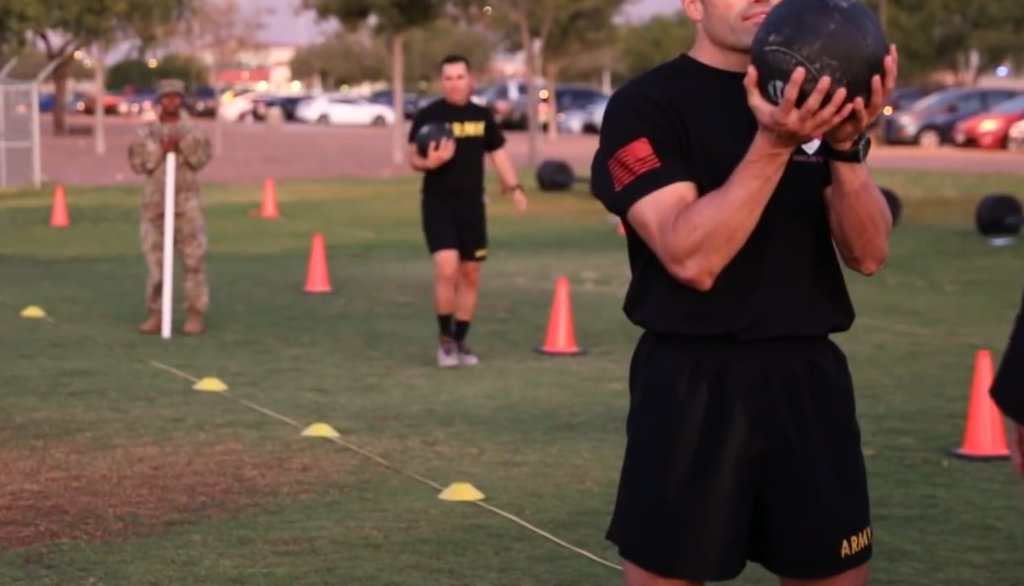
Improvement and Increased Training
Upon failing the ACFT, it’s essential to embark on a journey of improvement and increased training intensity. This involves adopting a holistic approach to physical fitness, one that addresses not only the areas of weakness but also aims to elevate overall physical health and performance. Service members should seek guidance from physical training instructors and leverage resources like personalized training programs that cater to their specific needs [5]. Emphasis should be placed on balanced nutrition, adequate rest, and recovery, as these are critical components of any successful training regimen.
Remedial Training: Program Enrollment
For those who need additional support, enrolling in a remedial training program is a constructive step forward. These programs are specifically designed to help soldiers meet the army’s physical fitness standards, offering structured and supervised training sessions. Participation in a remedial training program can provide the structured guidance and accountability many soldiers need to make significant improvements in their physical fitness levels.
Additional Training
Beyond structured programs, soldiers have the option to engage in additional training opportunities. This might include voluntary participation in physical fitness classes, workshops, or training camps. These resources can offer new techniques, exercises, and routines that might be more effective or engaging for the individual soldier, potentially leading to better outcomes in future ACFT attempts.
Diagnostic PT Tests
Conducting regular diagnostic PT tests can play a crucial role in preparing for a successful retest. These practice tests allow soldiers to gauge their progress, understand their current fitness levels, and identify areas that require more focused attention. By simulating the conditions of the ACFT, soldiers can also reduce test-day anxiety and improve their performance through familiarity with the test format and requirements.
Career Implications: Promotions and Special Assignments
The ACFT score can significantly impact a soldier’s career trajectory, influencing promotions and eligibility for special assignments. High scores may open doors to advanced training opportunities and leadership positions while failing the test can delay career advancement. It’s important for soldiers to recognize the broader implications of their physical fitness and to approach their preparation with the seriousness it deserves.
Official Record and Counseling
A failure on the ACFT goes on the soldier’s official record, which can lead to mandatory counseling sessions. These sessions aim to identify the underlying reasons for the failure and to develop a personalized improvement plan. Counseling provides a supportive framework for soldiers, offering them guidance, resources, and motivation to improve their physical fitness and to succeed in future tests.
Retention Implications: Continued Failures and Separation
The implications of failing the ACFT extend to the retention of service members. Continued failures can lead to administrative actions, including separation from the service. This stark reality underscores the importance of taking immediate and effective steps toward improving physical fitness after failing the ACFT. The military views physical readiness as non-negotiable, and soldiers must meet this standard to continue their service.
Medical Evaluation: Physical and Fitness Assessment
After failing the ACFT, undergoing a comprehensive medical evaluation can be a prudent step. This assessment aims to identify any underlying health issues that may be impacting a soldier’s physical performance. A fitness assessment can also provide valuable insights into specific areas of physical health that require attention, enabling the development of a more targeted and effective training plan.
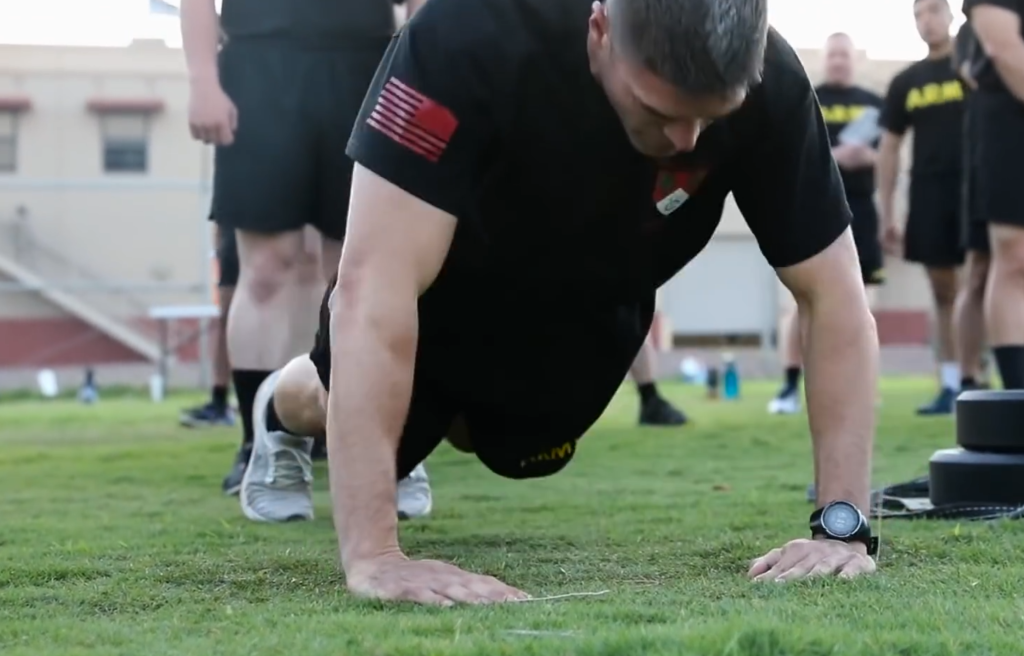
How Many Times Can You Try Passing the ACFT?
Firstly, it’s important to understand that the ACFT is not a one-shot opportunity. The Army recognizes that everyone can have an off day or may need additional training to meet the required standards. As such, soldiers are given multiple opportunities to pass the test [6].
After the first failure, a soldier is typically given a period of remedial training. This period allows them to focus on the areas where they struggled, with the guidance and support of their superiors and fitness trainers. After this period, which can last several weeks to a few months depending on individual progress, the soldier can attempt the ACFT again.
If the soldier fails the second attempt, they are typically given another round of remedial training and another chance to pass the test. The cycle of training and retesting can continue for a while, providing soldiers with ample opportunities to improve their performance.
[tds_note]However, there is a limit to how many times a soldier can fail the ACFT before facing more serious consequences. According to the Army’s regulations, if a soldier fails the ACFT three times in a row, they may be flagged and their case reviewed by a commander. This flag can impact career progression, limiting opportunities for promotion and reenlistment.[/tds_note]
In severe cases, after multiple failures and provide remedial training, a soldier may face administrative separation from the Army. This is usually a last resort, used only when it’s clear that the soldier is unable to meet the physical fitness standards required for service.
It’s worth noting that the exact number of attempts a soldier is given can vary depending on their circumstances and the discretion of their superiors. For example, if a soldier is recovering from an injury, they may be given additional time and support to pass the ACFT.
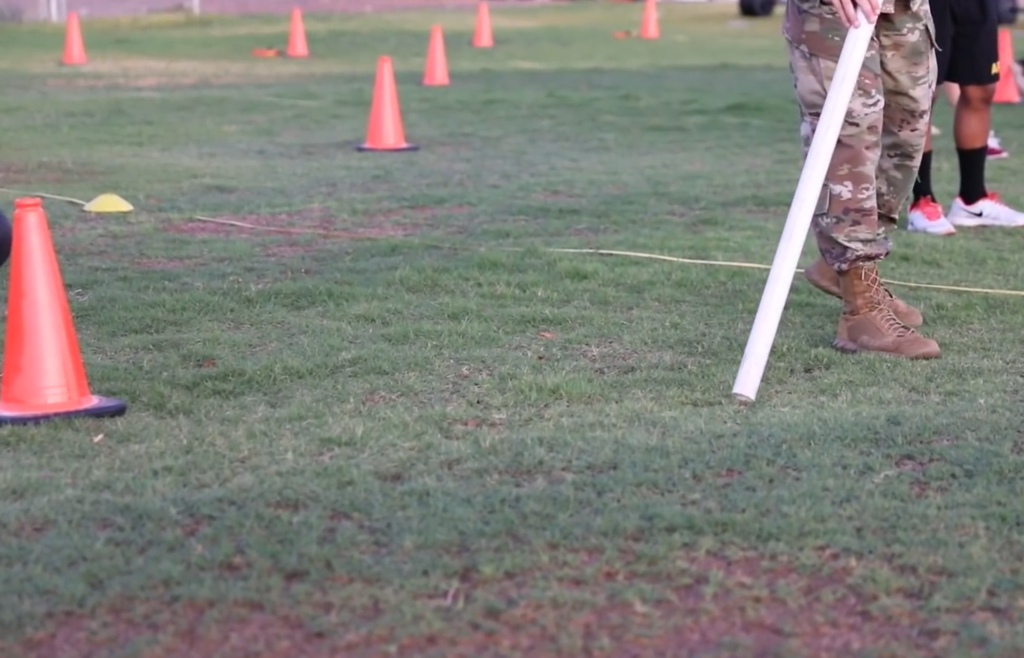
FAQ:
1. Can you deploy if you fail ACFT?
Failing the ACFT may impact deployment readiness. Soldiers must meet all deployment requirements, including physical fitness standards. Command decisions will consider the soldier’s overall readiness and unit requirements.
2. What happens if you don’t pass your PT test in the Army?
Soldiers who do not pass the PT test are typically required to undergo remedial training and retest within a specified period. Continued failures could affect promotions, assignments, and retention in the Army.
3. How many people fail the ACFT?
The failure rate for the ACFT varies based on the population and the specific standards in place at the time of testing. The Army continually assesses performance data to adjust training and preparation resources.
4. What is the most failed event in the ACFT?
Historically, events such as the Leg Tuck have been challenging for many soldiers, leading to higher failure rates. The Army has introduced alternate events to accommodate different physical strengths.
5. Is failing a PT test an honorable discharge?
Failing a PT test alone does not directly lead to an honorable discharge. Multiple failures, however, could initiate administrative separation processes, the nature of which depends on the soldier’s service record and circumstances.
6. What is a good ACFT score?
A good ACFT score varies by age, gender, and military occupational specialty (MOS) requirements. Generally, scores above the minimum passing threshold that demonstrate well-rounded physical fitness are considered good.
7. Do you get flagged for failing a PT test?
Yes, failing a PT test can result in a flag, which may temporarily restrict certain privileges, such as promotions, until the soldier passes the test.
8. Is the ACFT hard?
The ACFT is designed to be challenging as it reflects the physical demands of combat. Difficulty varies among individuals, depending on their physical condition and preparation.
9. Do you have to pass all events in ACFT?
Yes, soldiers must meet the minimum standard for each of the six events in the ACFT to pass the test overall.
10. How long is the ACFT army time limit?
The total time to complete the ACFT can vary but is designed to be completed within about 50 minutes to an hour, including all six events and transitions.
11. What happens if you fail the ACFT in 2024?
Soldiers who fail the ACFT are provided with opportunities for remedial training and retesting. Policies regarding failure consequences can evolve, so it’s important to refer to the latest Army guidelines.
12. How hard is it to get a 600 on the ACFT?
Achieving the maximum score of 600 on the ACFT is extremely challenging and requires exceptional physical fitness across all six events. It represents peak physical condition and performance.
13. What happens if you fail the APFT twice?
Soldiers who fail the Army Physical Fitness Test (APFT) twice may face administrative actions, including possible separation, depending on their unit’s policy and the circumstances of their failure.
14. How much notice is required for ACFT?
The required notice period for the ACFT can vary by unit but generally includes enough time to allow soldiers to prepare adequately for the test.
15. What happens if you score a 540 on the ACFT?
Scoring 540 on the ACFT is a high achievement, indicating a strong level of physical fitness. Soldiers scoring at this level are likely exceeding the minimum requirements for their age, gender, and MOS.
16. What type of discharge do you get for failing ACFT?
Discharge types for failing the ACFT depend on multiple factors, including the number of failures and other aspects of a soldier’s service record. It could range from honorable to other than honorable, based on the circumstances.
17. What are the risks of ACFT?
The risks associated with the ACFT include the potential for injury if proper form and preparation are not followed. The Army emphasizes training and education to mitigate these risks and ensure soldier safety during the test.
Useful Video: WHAT HAPPENS IF I FAIL THE ACFT DURING ARMY BASIC TRAINING?
References:
- https://www.army.mil/e2/downloads/rv7/acft/PPOM_22-023.pdf
- https://www.armyprt.com/acft-standards/acft-failure/
- https://www.reddit.com/r/nationalguard/comments/13qlls2/what_happens_if_i_fail_my_acft/
- https://www.army.mil/e2/downloads/rv7/acft/PPOM_22-023.pdf
- https://www.armyprt.com/acft-standards/acft-failure/
- https://www.reddit.com/r/nationalguard/comments/13qlls2/what_happens_if_i_fail_my_acft/






Leave a Reply